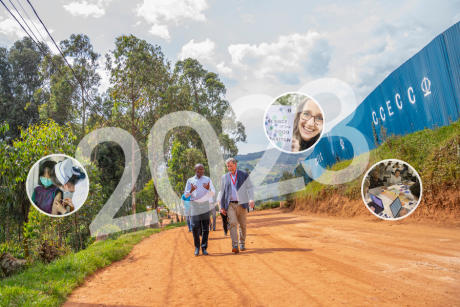By Chris Lam
PhD student, Duke University Pratt School of Engineering
Alumnus, Duke Master of Science in Global Health
Bon jou! This semester is off to a hectic start already. I just returned stateside after a week in Haiti working with Family Health Ministries, a partner organization of DGHI that works to improve health outcomes for Haitian women and families. I am gathering clinical data to validate and improve an experimental optical device for screening cervical cancer, a preventable and treatable disease that remains one of the top killers of women in Haiti. As a first year PhD student in the Biomedical Engineering Department at the Pratt School of Engineering, I’ve been really fortunate to have a chance to bring our lab’s technology out into the field. But, how did I end up in Port-Au-Prince in the first place?
After graduating college and working for a few years, I decided to return to grad school to pursue a degree that could integrate my love of engineering and global health. The Duke Master of Science of Global Health was a great fit for me to build new skill sets, deepen my understanding of the global burden of disease, and maintain my connection with engineering. One of the major strengths of the MSc-GH program is the coursework in epidemiology and study design. My favorite part of the program is being able to integrate my thesis research and fieldwork with the concepts I learned in the classroom.My MSc-GH thesis examined the effectiveness of a reduced sodium salt substitute program for treating hypertension among Tibetan elderly. I lived in Beijing, China for three months as an intern for The George Institute for Global Health, another partner of DGHI. I was really fortunate to co-author two research publications from my time at the George Institute and establish life-long connections across the globe!
I also worked as a teaching assistant for Dr. Robert Malkin’s senior design capstone course, Design for the Developing World (BME262L/462L). The course focuses on producing innovative solutions for medical issues encountered in the field. Projects have ranged from a HIV pouch seal tester to an X-ray step wedge.
Now as a PhD student, I have taken several trips to Haiti for my cervical cancer work. The goal of my work is to develop an optical device for screening cervical cancer that uses the differential absorption and scattering of visible light between normal and malignant tissue. This project is important because there are a limited number of pathologists in Haiti to read cervix biopsy samples. As a result, biopsies are sent to the U.S. for analysis and the turn-around time is between one and three months. This presents a challenge because it can delay a woman getting treatment if it is necessary. For more details about this work, visit FHM’s website.
During my trip, I was really excited to practice my language skills with the medical staff. At Duke, we are lucky to have Haitian Creole instructor Professor Jacque Pierre and other really great resources like the John Hope Franklin Center’s Haiti Lab. Most folks I met were really surprised I had tried to learn Creole after my trip to Haiti last May.
I always feel welcomed by health staff at Family Health Ministries and the Blanchard clinic, a women’s health clinic at the Haiti Outreach Ministry Blanchard compound. It is always a pleasure to visit my friends and colleagues in Haiti, as well as a learning experience as I work on the cervical cancer screening project.



